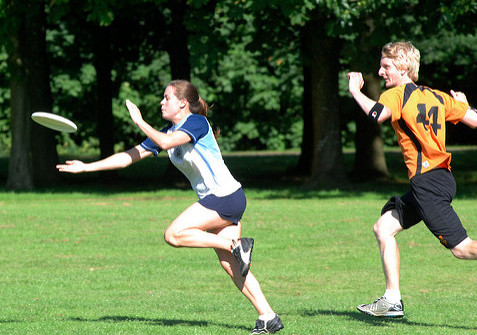By Doyice Cotten
 Liability waivers often include an assumption of risk, a waiver of liability for negligence, and an indemnification agreement. The purpose of the waiver of liability is to protect the provider from liability in the event of participant injury. In spite of the presence of a signed waiver, suit is often filed by the injured party or by others on his or her behalf.
Liability waivers often include an assumption of risk, a waiver of liability for negligence, and an indemnification agreement. The purpose of the waiver of liability is to protect the provider from liability in the event of participant injury. In spite of the presence of a signed waiver, suit is often filed by the injured party or by others on his or her behalf.
The object of the indemnification agreement is for the provider to be able to recoup any loss resulting from such a legal action – the loss may include a monetary judgment, attorney fees, and court costs. Interestingly, when lawsuits occur following the signing of a document including both a waiver of liability and an indemnification agreement, courts usually address the liability waiver and often enforce it, but the indemnification agreement is most often ignored – in which case, the provider may win the suit, but may have suffered significant legal fees.
In a 2017 Massachusetts case (Salm v. Revere Teamworks, LLC), Vito Salm was injured while playing ultimate Frisbee in the Teamworks facility when he jumped to catch a thrown Frisbee and was knocked headfirst into the boards surrounding the field. Prior to participation, Salm had signed a document that included the following exculpatory language:
“I, for myself and on behalf of my heirs, assigns, personal representatives and next of kin, HEREBY RELEASE, INDEMNIFY, AND HOLD HARMLESS THE Boston Ultimate Disc Alliance, their officers, officials, agents, and/or employees, other participants, sponsoring agencies, sponsors, advertisers, and, if applicable, owners and lessors of the premises used for the activity (Releasees), WITH RESPECT TO ANY AND ALL INJURY, DISABILITY, DEATH, or loss or damage to person or property, WHETHER ARISING FROM THE NEGLIGENCE OF THE RELEASEES OR OTHERWISE, to the fullest extent permitted by law.”
Following the injury, Salm filed a suit against Revere Teamworks alleging negligence. Revere, in response, entered a counterclaim for indemnification based on the agreement signed by Salm. The appellate court agreed with the trial court judge that the document “signed by Salm is unambiguous and bars his negligence claims against Teamworks.” The court stated that Salm agreed to indemnify those “Releasees” and to waive any claim for injuries or losses “arising from the negligence of the Releasees or otherwise.”
The appellate court stated that the trial judge’s directed verdict regarding the waiver of liability was correct. In addition, the court held that Teamworks was entitled to recover for fees and costs attributable to its defense of Salm’s claims and awarded $20,116.50 to Teamworks.
Massachusetts waiver law favors the enforcement of waivers (including waivers relating to sports and recreation). Cotten and Cotten have found the chances of a waiver being enforced in court in Massachusetts are GOOD. Further, Massachusetts courts enforce parental waivers (those where a parent signs for a minor participant) used by both commercial and non-profit entities. More waiver information on Massachusetts waiver law may be found in Waivers & Releases of Liability (9th ed., 2016). Ordering information can be found elsewhere on this website.
Risk Management Take-Away
Your waiver should include both a waiver of liability for negligence and an indemnification clause in it. The indemnification clause in this waiver was very brief, but was enforced; best practice would include a more detailed agreement (also discussed in Waivers & Releases of Liability).
Photo Credit: Thanks to Sam on Flickr.
